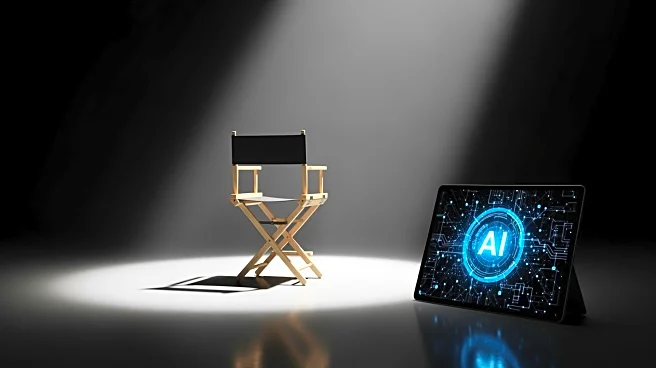What's Happening?
The British acting union Equity has expressed concerns over Tilly Norwood, an AI 'actress' developed by AI production studio Particle6. Equity's audio and new media organizer, Shannon Sailing, stated that
Norwood is not a real actress but an AI tool composed of performers' work, raising questions about the consent and origin of the data used. Equity's general secretary, Paul Fleming, emphasized the need for transparency in AI data usage, suggesting the use of GDPR regulations to ensure ethical practices. The controversy arose after claims that talent agents showed interest in Norwood, which Sailing criticized as irresponsible, urging agents to support human performers amidst AI advancements.
Why It's Important?
The development of AI tools like Tilly Norwood highlights ongoing debates about the ethical use of AI in creative industries. Concerns about consent and data origin reflect broader issues of intellectual property rights and the potential displacement of human performers. As AI technology advances, it poses challenges to traditional roles and raises questions about the future of employment in the entertainment sector. The union's stance underscores the need for regulatory frameworks to protect artists' rights and ensure fair practices in AI development.
What's Next?
Equity plans to investigate the origins of the data used in AI creations like Tilly Norwood, potentially leveraging GDPR data protection regulations to demand transparency from companies. This could lead to increased scrutiny and regulation of AI tools in the entertainment industry, influencing how AI is integrated into creative processes. The union's actions may prompt other industry stakeholders to consider ethical guidelines and protections for performers as AI technology becomes more prevalent.
Beyond the Headlines
The controversy surrounding Tilly Norwood raises broader questions about the role of AI in society and its impact on human creativity. As AI tools become more sophisticated, they challenge traditional notions of authorship and originality, prompting discussions about the value of human artistry versus technological innovation. This development could lead to a reevaluation of cultural and ethical standards in the digital age.











